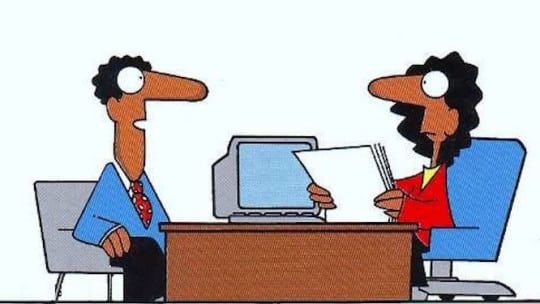
With the spring fever hiring months behind us, PR job hunters might think it's time to throw their resumes on the back burner until next year. Not so: according to a Bloomberg report, July and October were huge for job openings from 2010 to 2015, lagging just barely behind April for vacancies. Now is the time to look for open positions, and focus on presenting the skill set and demeanor to fit your on-paper selling points if you get called in. Below, a few pointers:
Do your homework on the brand or agency—and their current goals. Some communicators, well-versed in distributing PR content and emails in volume, may be shooting out resumes and cover letters en masse without actually looking into what a brand or agency does best. Visit the brand's social channels to seek out patterns in recent campaigns, and make informed guesses at the brand's messaging priorities. For agencies, seek out clients' recent press placements and trending social media posts to see what kind of material is performing best. The priorities and successes already established online will lead to opportunities for you to compliment a brand on what they've been doing well, prove that you understand what they do and offer your own insight on how you can build upon that momentum.
Practice with a mock interview. A few days before your interview, ask a friend or family member to take a few minutes out of their day for a dry run. Give them a short script of a few commonly asked interview questions, such as: "Why do you want to work here?" "Tell me about your experience in communications," "What was your most successful campaign at your last company?" and, of course, the dreaded "What would you say are your biggest weaknesses?" After your run-through, have your mock interviewer give you feedback, and note any habits to be mindful of (rambling, low affect, oversharing, saying "um" and "like").
Consider the potential pitfalls of phone and video interviews. Many companies hold phone screenings before calling in a candidate. This can be tricky, as without facial cues, a neutral vocal tone may come through as uninterested or bored. To avoid sounding jaded, use a variety of speaking tones to avoid both a monotone and going up in pitch at the end of every sentence.
For global brands and agencies with multiple branches, you may be interviewing via video call. In these cases, try to look into the camera lens when you or the interviewer speaks. This may feel unnatural, but it will be the closest thing to making natural eye contact from the interviewer's end. Lean slightly forward, refrain from fidgeting or nodding too vigorously while the interviewer speaks and maintain a pleasantly amused facial expression (picture a favorite pet, close friend or family member).
Create a cheat sheet. While you're researching the brand or agency you are interviewing for, grab a notepad and write down the basics: the company's mission, its major accomplishments and recent campaigns. Place your notes in a portfolio or folder along with 6-10 resumes (you never know how many panel interviewers you will meet with), and keep it with you during your interview. When the interviewer asks if you have any questions, you can refer to one of your research notes and ask for a behind-the-scenes look at how they've run a specific campaign. You'll show you've done your homework, and also get some insider info on how the brand or agency runs their operation.
Repeat. Like losing weight, or growing your professional network, momentum is key to good interviewing chops. You may tank the first couple of interviews, especially if it's been a while since your last job hunt. But each time you interview, your overall pitch will feel more natural, your responses more polished. The more interviews you go on, the lower the stakes will feel, which will give you an aura of confidence and ease nerves. You'll expect the unexpected, easily navigating pointed questions and unannounced writing tests. Ultimately, even the power dynamic will shift: The interviewee becomes the interviewer. Rather than suffering in the hot seat, attempting to sell yourself, you'll be investigating whether the company is right for your own career goals and growth.
Follow Sophie: @sophiemaerowitz
